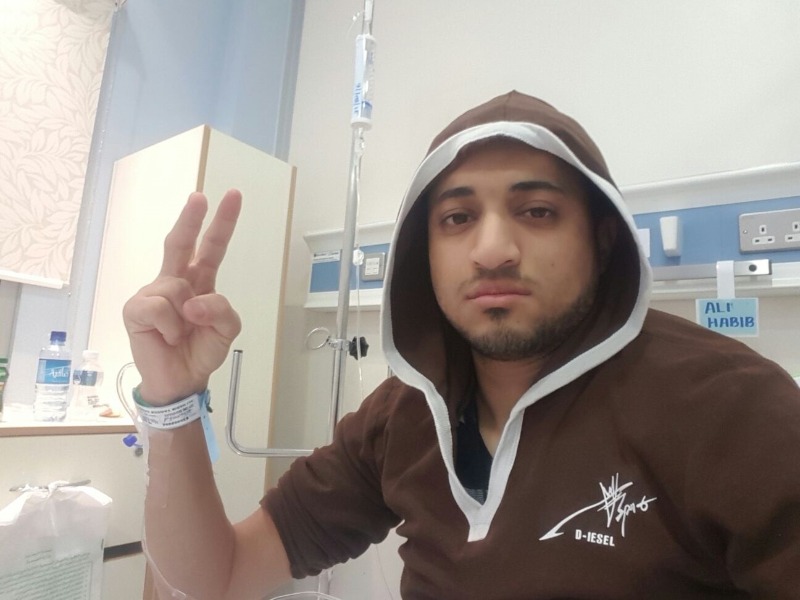Ali Habib Saleh is a 25-year-old Bahraini citizen who has been arbitrarily detained, tortured, and denied healthcare by the Bahraini government.
The Government of Bahrain has used the judicial system to arbitrarily harass Ali – he has been arrested not once but four times. After his first arrest, he was tried in absentia for charges related to rioting, and acquitted. The second time he was arrested for beating a police officer and sentenced to 45 days in custody but released the second day. He was arrested a third time by traffic police under suspicion of burning a police car. They took him to the Hamad Town police, who tortured him and then released him. On his fourth arrest, the government re-opened the case for which he had been acquitted, and he was convicted and sentenced to three years in prison.
On his fourth arrest, on 9 March 2017, Bahraini forces in civilian clothing arrested Ali at his father’s home without a warrant. After his arrest, the officers took him to the Criminal Investigations Directorate, where they subjected Ali to various acts of torture for a period of five days. The police subjected him to physical beatings, forced nudity, verbal insults, and electric shock. He was again found guilty in absentia and sentenced to seven years’ imprisonment on 22 October 2017, though his sentence was later reduced to five years. Combined with his other conviction, he is sentenced to a total of eight years.
In addition to the government convicting him in unfair trials and subjecting him to torture, Bahrain has also failed to provide him with adequate and necessary healthcare during his detention. Ali suffers from sickle cell anemia, and his treatment has been neglected by the prison authorities despite repeated requests from his family. On 5 November 2017, his family filed a complaint with the Bahraini Ministry of Interior (MoI) Ombudsman concerning Ali’s deteriorating health. Later that month, following the efforts of civil society activists and the parents’ call for an ambulance, he was transferred to a military hospital in a state of pain. His pelvic bone was weakened due to lack of treatment for his sickle cell anemia, and he required a blood transfusion. After 25 days in the hospital, he was taken back to the prison against medical advice.
In December 2017, his family received a call from an officer in the MoI Ombudsman, who promised the intervention of a doctor. However, no action was taken until 3 January 2018, following another request for an ambulance from the family, when he was again transferred to the hospital. Upon his return to the prison, an officer confiscated his medication. On 14 January 2018, his family filed another complaint with the MoI Ombudsman.
The Government of Bahrain has violated a number of international instruments in its ill treatment of Ali, including the Convention Against Torture and Other Forms of Cruel, Inhuman or Degrading Treatment or Punishment (CAT), the International Covenant on Civil and Political Rights (ICCPR), and the International Covenant on Economic, Social and Cultural Rights (ICESCR). Bahrain is a party to each of these treaties. Torture is prohibited under both the CAT and the ICCPR (Article 7). Further, the multiple arrests and trials in absentia are contrary to fair trial rights, and render his detention arbitrary, in violation of Article 9 of the ICCPR. In addition, the wilfull deprivation of access to medicine and access to physicians is in violation of the right to health enshrined in Article 12 of the ICESCR.
ADHRB calls on Bahrain to uphold its international obligations, to immediately release Ali and nullify his conviction, and to ensure adequate healthcare for Ali and all other inmates in its care.
CORRECTION: This post was originally published on 19 January 2018 and updated on 30 January 2018. The original post contained minor factual errors concerning the charges against him, the location of torture, and some of his medical conditions.





